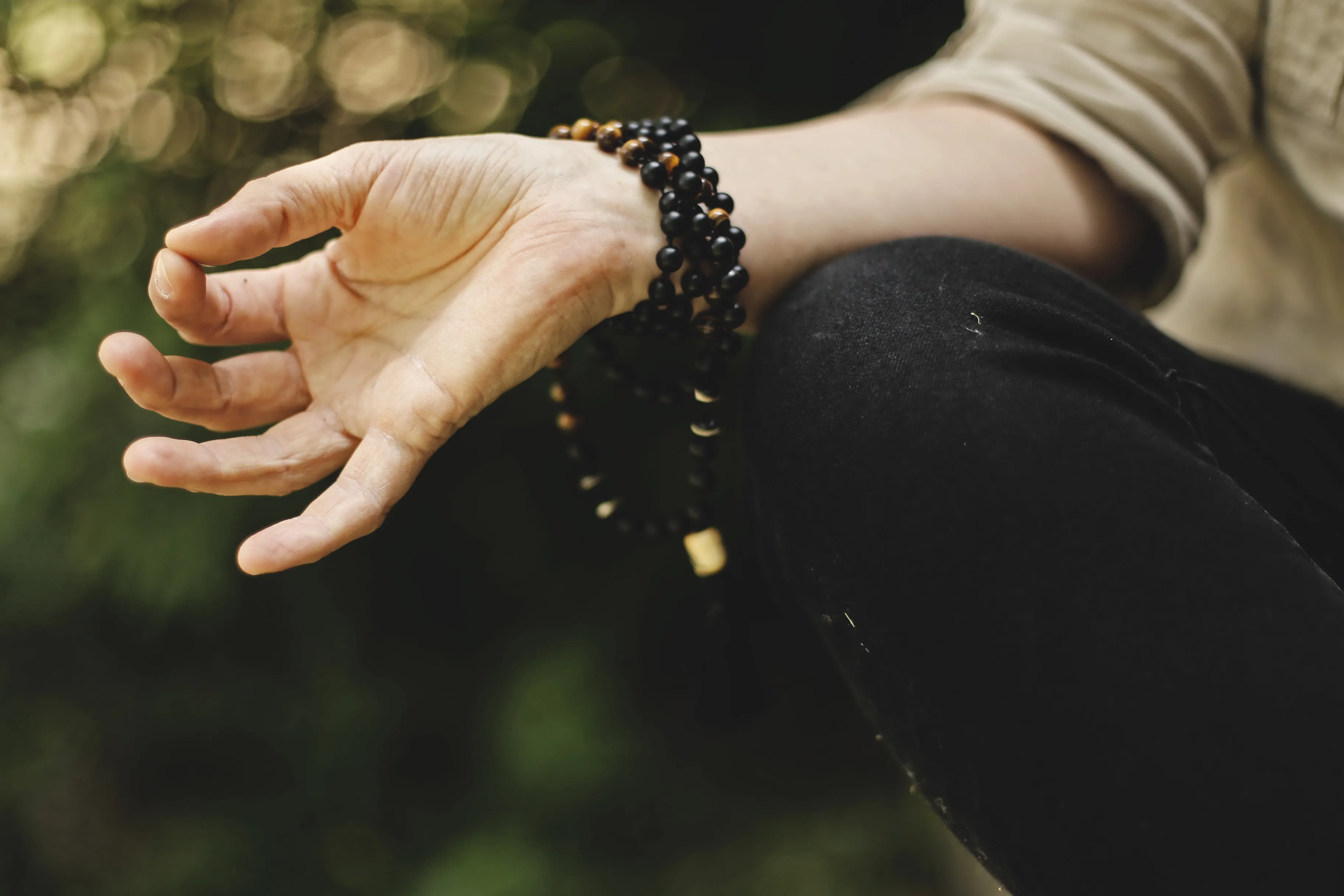A Deep Dive Into Holistic Healing
In today's fast-paced world, many of us feel scattered, stressed, and disconnected. But imagine waking up feeling truly balanced—mentally clear, physically energized, and spiritually connected. Imagine a healthcare system focused on the whole person rather than just treating illness, schools teaching mindfulness and emotional intelligence, and workplaces encouraging self-care rather than burnout.
In our previous discussion, we explored the incredible self-healing journey of Anu Aggarwal—a woman who defied all odds and healed herself holistically. Today, we take a deeper dive into the mechanics of holistic healing and how we can integrate its principles into our own lives.

Reflecting on Wellness
Before we explore holistic healing further, take a moment to reflect:
✨What does wellness mean to you?
✨ Is it just the absence of disease, or is it a state of full vibrancy and energy?
✨ How do your thoughts, emotions, and spiritual well-being influence your
physical state?
✨ What if the secret to true wellness isn’t just diet, exercise, or sleep but how
you nurture your mind, body, and spirit?
True healing is about addressing the whole self, not just treating symptoms. Let’s dive into what that means.
What is Holistic Healing?
According to the World Health Organization, health is "a state of complete physical, mental, and social well-being and not merely the absence of disease or infirmity." This a great definition in that it integrates a holistic approach, however, this definition overlooks a crucial aspect—spiritual health. Only by integrating all dimension oh health - the physical, mental, emotional and spiritual can we truly understand holistic healing and the essential role it plays in our overall well-being.
Holistic healing is an integrative approach that considers the entire being—mind, body, and spirit—rather than focusing on individual symptoms. Your emotions, thoughts, and spiritual well-being directly impact your physical health, and vice versa.
Many of us go through life treating symptoms—whether it’s taking medication for anxiety, relying on caffeine to stay awake, or numbing stress through social media. But what if we paused and looked deeper? What if we addressed the root cause instead of masking symptoms? This is what holistic healing aims to do.
Research shows that chronic stress contributes to conditions such as hypertension, digestive issues, and immune system dysfunction. Holistic healing is about self-awareness and lifestyle adjustments—it’s not just about what we eat or how we move, but also about how we think, feel, and connect with the world.
Ancient Wisdom Meets Modern Science
Ancient traditions like Ayurveda, Traditional Chinese Medicine, and African spirituality have long embraced these principles. These healing traditions emphasize balance and energy flow:
🌟 Ayurveda focuses on balancing energies (doshas) to achieve health.
🌟 Traditional Chinese Medicine emphasizes the flow of Qi through acupuncture, movement, and herbal remedies.
🌟 African healing modalities incorporate herbal medicine, ancestral wisdom, and energetic alignment through rituals, music, and dance.
We are fortunate enough to live in an age where we a starting to see the merging of science and spirituality. Today sceince is finally catching up and helping to validate these age-old practices. The study of Neuroscience shows that mindfulness and meditation can physically rewire the brain, reduce stress, and promote emotional resilience. Spirituality also plays a vital role—practicing gratitude, for instance, has been scientifically proven to reduce depression, improve sleep, and strengthen the immune system.
Practical Steps for Integrating Holistic Healing
Now that we understand the principles of holistic healing, let’s turn them into practical steps you can incorporate into your daily life:
✅ 1. Expand Your Mindful Awareness
- Cultivate self-awareness by observing your thoughts and emotions.
- Start your day with deep breathing or a short meditation.
- Try a guided meditation before bed or upon waking up.
- Even 5 minutes of mindfulness can reduce anxiety and increase focus.
✅ 2. Improve Your Holistic Nutrition
- Nourish your body with whole, nutrient-rich foods.
- Incorporate anti-inflammatory foods like turmeric, ginger, and leafy greens.
- Avoid overly processed foods and make balanced, sustainable changes to your diet.
✅ 3. Incorporate Daily Physical Movement
- Engage in practices like yoga, tai chi, or Qi Gong to keep energy flowing.
- Take daily walks or find a physical activity you enjoy.
- Movement is medicine—make it a ritual.
✅ 4. Strengthen Your Spiritual Connection
- Connect with something greater than yourself, whether through prayer, journaling, or nature.
- Practice affirmations or gratitude journaling to shift your mindset and lift your frequency.
- Take moments of stillness to reflect and reconnect with your inner self.
✅ 5. Express Yourself Creatively
- Creativity is a powerful outlet for processing emotions and expressing your true self.
- Engage in music, art, writing, dance—whatever resonates with you.
- If you feel stuck emotionally, try free writing or drawing without overthinking it.
Healing as a Journey, Not a Destination
The key to holistic healing is consistency. Healing doesn’t happen overnight, but small, intentional steps lead to profound transformations. When we integrate mind, body, and soul, we don’t just heal individually—we heal collectively.
Holistic healing has the power to shift not only personal well-being but also society’s approach to health. My own journey mirrors that of Anu Aggarwal and countless others. Healing is not just about overcoming illness—it’s about reclaiming your power, aligning with your true self, and creating a ripple effect that inspires others.
What’s Your Next Step?
We covered a lot today. Now, ask yourself—what’s the one step you can take today to bring more balance into your life?
- Adding a few minutes of deep breathing to your morning routine?
- Eating more mindfully?
- Reconnecting with your spiritual side?
Whatever it is, small changes lead to big transformations.
If this resonated with you, share this with someone who might benefit, and thank you for making an impact in our collective healing, when you heal, the collective heals.
Until next time, stay mindful, stay compassionate, and believe in the miracle that is YOU.


